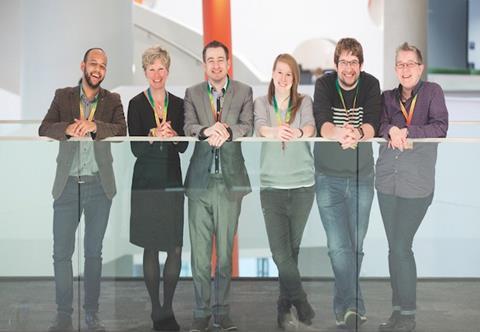
The University of Sheffield has worked hard to proactively develop a supportive and inclusive working environment, which has helped to lead to its inclusion on Stonewall’s Top 100 Employers 2016 list, and its ranking in the top third of The Sunday Times’ 100 Best Not-For-Profit Organisations to Work For 2016 list.
In its 2016 staff survey, 94% of employees said they were proud to work for the organisation. Almost all (99%) felt that the university respects staff regardless of their sexual orientation, with high results also reported for other protected characteristics.
Julie Campbell, HR manager, equality and diversity at the University of Sheffield, says: “It’s always about looking at inclusion in the widest possible sense and embedding it into everything we do so that it becomes part of the fabric of the university.”
The organisation’s reward and recognition programme, The Deal, aims to provide an employee benefits offering that has the flexibility and choice required to support the diverse needs of its workforce.
The university also takes a proactive approach to wellbeing in order to support the physical, mental and financial health of all staff. This includes an employee assistance programme (EAP), provided by Health Assured, dignity at work advisors who can provide confidential support to staff and signpost them to appropriate services, occupational health services provided by Health Management Limited, as well as the university’s health and wellbeing programme, Juice, through which staff can get health checks and take part in activities such as tai chi, mindfulness workshops, a staff choir, and bootcamp training.
A number of awareness events around inclusivity and diversity are held at the university, often in partnership with its employee network groups, which include LGBT@TUoS, Women@TUoS, Parents@TUoS, Adopters@TUoS, and the Staff and Disability Network. Working alongside the lesbian, gay, bisexual and transgender (LGBT) network, the organisation set up an LGBT ally initiative this year, Open@TUoS, and almost 700 employees have signed up so far.
Campbell says: “All of our networks run their own social events and also provide a safe space for peer support, but they also align with university business and that’s where we can do some really transformational work and really try to progress the agenda.”
In January, the university hosted its first LGBT Steminar, a day-long event bringing together researchers and academics with the aim of improving LGBT visibility in science, technology, engineering and mathematics (Stem).
To support gender diversity among its workforce, the university offers schemes such as the Women Academic Returner’s Programme. This programme enables female research and academic staff to apply for funds to buy out their teaching or administrative duties, or to put towards a development opportunity, with the aim of helping them stay at the forefront of research in their field following maternity leave.
The university also takes into account the physical working environment when looking at how best to provide an inclusive workplace for employees. In addition to accessibility, this includes considerations such as gender-neutral toilets, prayer rooms, and breastfeeding rooms. Together with the Staff and Disability Network, the organisation runs seminars on inclusive buildings and hidden disabilities. In September 2015, the University of Sheffield launched an app with DisabledGo to provide information about accessibility across its campus.
The app, AccessAble, allows users to locate accessible toilets, lifts, and ramps, get directions around campus, filter results according to their own access requirements. It also includes an emergency locator feature and is compatible with voice software so that it can be accessed by all.











